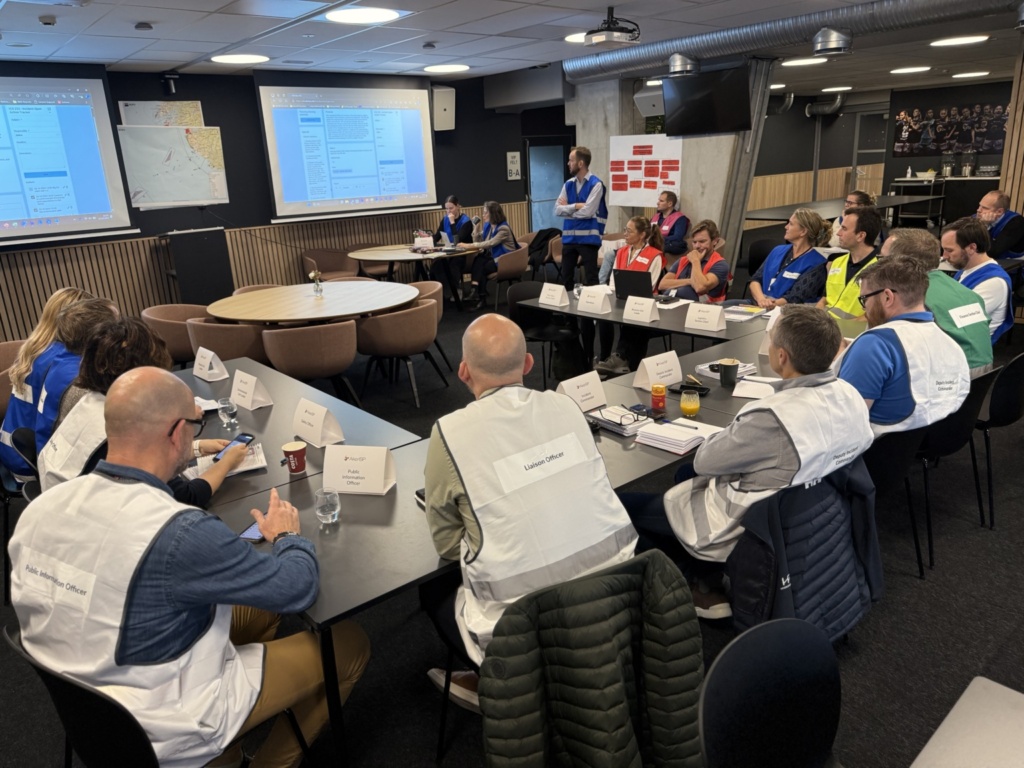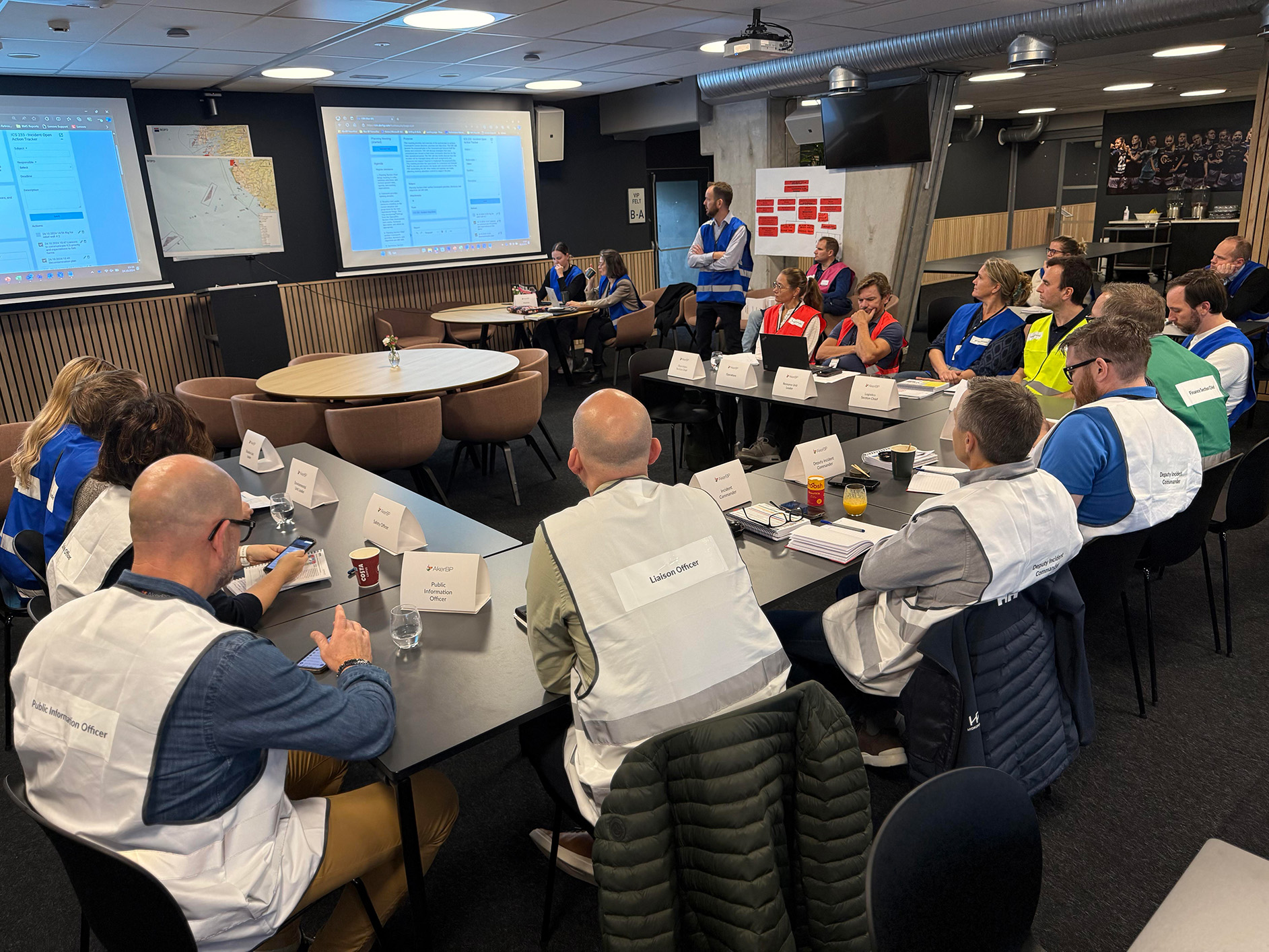Well-executed emergency exercise
In October, Aker BP, in collaboration with several operators, suppliers, authorities, and partners, organized a comprehensive emergency preparedness exercise called Tveegg. The evaluation has now been completed, and important learning points have been identified.
“The name Tveegg refers to a double-edged sword, symbolizing the balance between two critical processes: operational response and holistic planning,” explains project manager Harald Kvernstrøm.
The exercise challenged participants to handle both the acute incident and a strategic planning process simultaneously. By using the ICS methodology (Incident Command System), which is a recognized standard for crisis management, the collaboration between the actors was streamlined.

Large participation and cross-company collaboration
Over 180 people participated in the exercise, which was conducted at Aker BP’s offices in Jåttåvågen, with activities also in Haugesund, Sirevåg, and Farsund. NOFO (Norwegian Clean Seas Association for Operating Companies) contributed from their facilities at Forus.
For the first time, the assist-team agreement was tested in practice. The agreement ensures that operating companies can share trained personnel during serious incidents on the Norwegian continental shelf.
“It is challenging to organize an exercise of this size, but the learning outcome is significant. We challenge both the industry and our own organization, and see that many have gained networks and valuable experiences,” says Kvernstrøm.
As the action leader, Aker BP played a key role. To staff a robust emergency organization over time, support from other operators and suppliers will be necessary.
Effective systems and structure
Everyone who contributed to incident management was met with clear routines for parking, access cards, and IT access. A registration system provided a complete overview of attendance and the roles that were covered. Based on the experiences from the exercise, this system will be further developed.
The ICS methodology, which has been a gradually introduced standard in the Norwegian oil and gas industry since 2015, formed the basis for the exercise. Twelve operators and suppliers contributed personnel who worked across companies to solve tasks as efficiently as possible. All participants had completed ICS courses in advance, ensuring a common understanding of roles and tasks. Participants wore vests in different colors, clearly showing their roles in the ICS structure, and worked closely together to handle the scenario.

Realistic and educational exercise
To make the exercise as realistic as possible, a game staff in a nearby office simulated incidents that required responses from the participants. At the same time, controllers and evaluators monitored the exercise and assessed performances with the aim of strengthening preparedness and collaboration routines.
“The exercise confirmed that the assist-team agreement works. We managed to establish cooperation quickly and effectively, but also identified areas for improvement that we need to address to strengthen ourselves for future incidents,” says Kvernstrøm.
The way forward
The results from the exercise provide a basis for further development and training.
“Now we must continue to implement the improvements. This is not just about getting better in emergency situations, but also about strengthening the industry’s overall interests. We must ensure continuity and build robust preparedness for the future,” concludes Kvernstrøm.
“We will share the experiences from the Tveegg exercise with the other operators so that it can be useful before the next major joint exercise.”
